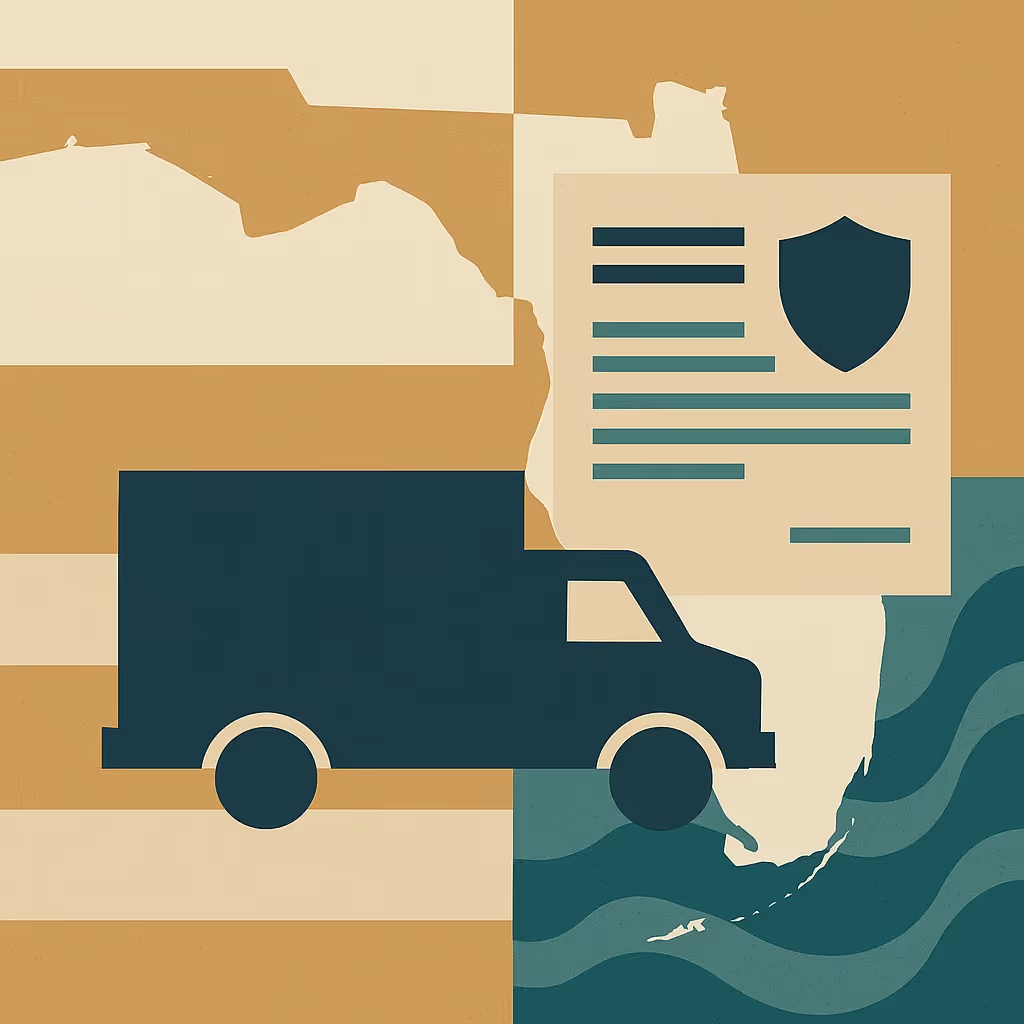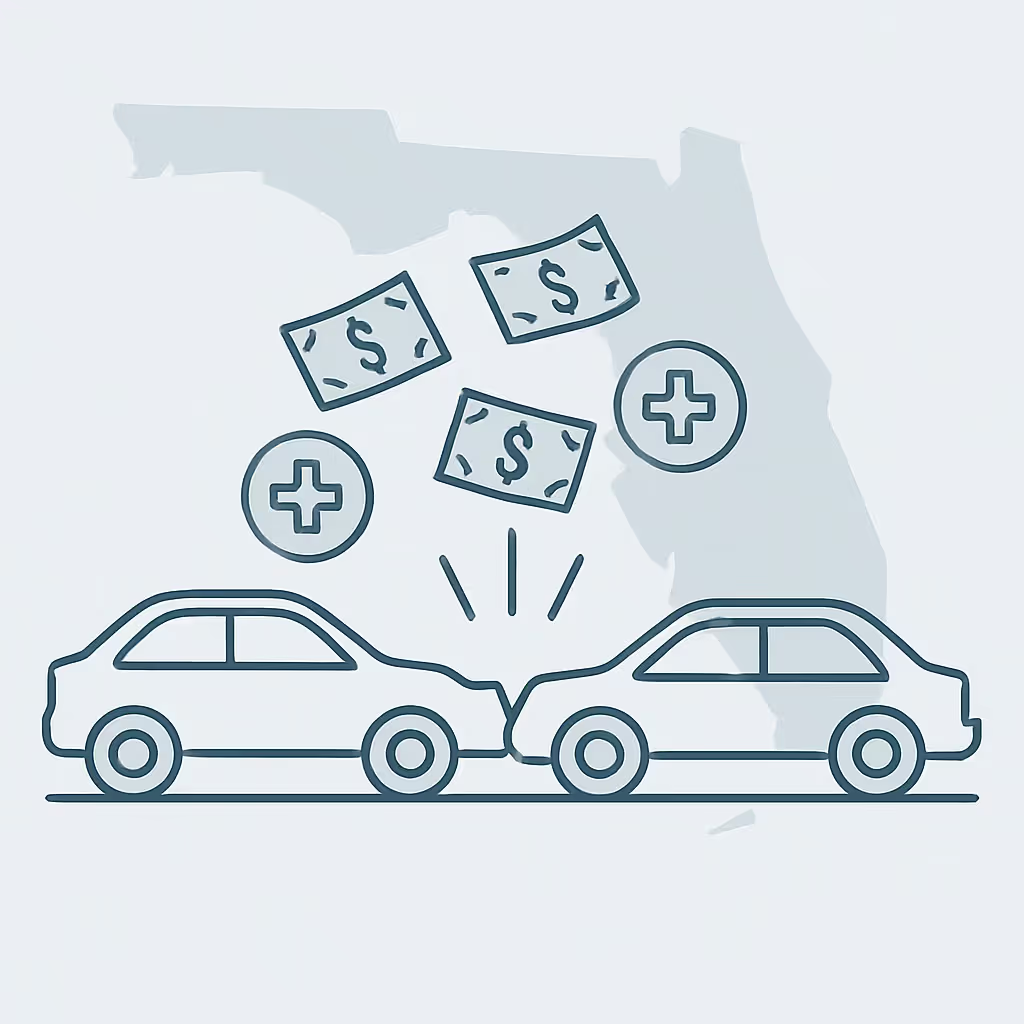Understanding Florida's No-Fault Insurance: What Melbourne Drivers Need to Know
Learn how Florida's no-fault insurance works, when you can sue after an accident & what Melbourne drivers need to know about PIP coverage & serious injury.
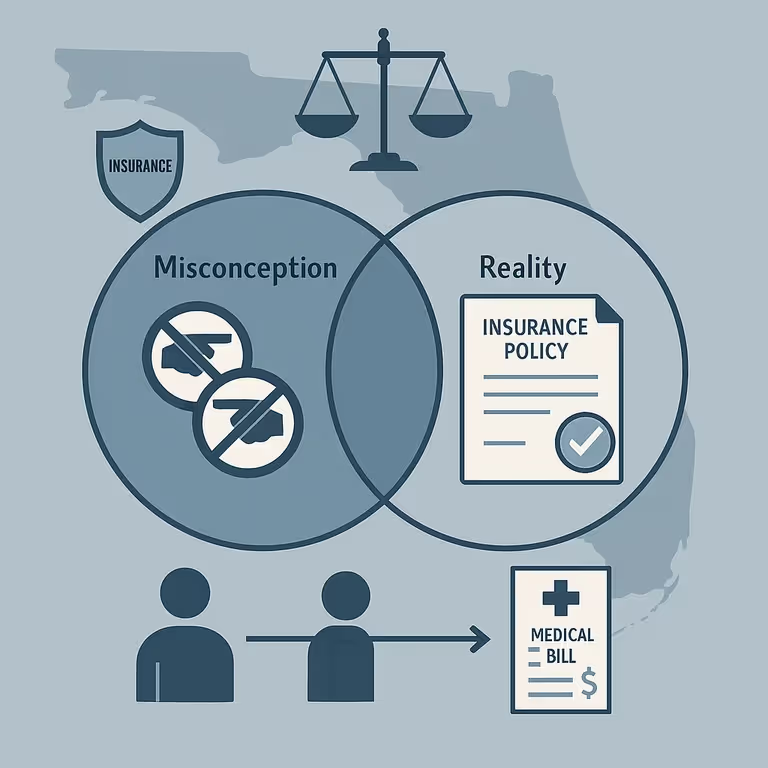
- Florida drivers must carry $10,000 minimum PIP coverage that pays 80% of medical expenses regardless of fault.
- You can only sue at-fault drivers if injuries meet Florida's strict "serious injury threshold" requirements.
- Legislative changes may eliminate no-fault requirements, potentially affecting every Florida driver's insurance obligations.
Worried About Your Injury Case? We'll Review It - Free!


Understanding Florida's No-Fault Insurance System Basics
Many Florida drivers think "no-fault" means no one is responsible after a car accident, but this common misconception can be costly. The truth is more nuanced and understanding it could save you thousands of dollars and significant headaches after an accident.
Florida is indeed a no-fault state, which means that after a car accident, drivers must first turn to their own insurance coverage for medical expenses and lost wages, regardless of who actually caused the crash. This system doesn't mean fault isn't determined—it absolutely is. Rather, the no-fault system is designed to provide immediate medical coverage and reduce the number of lawsuits by requiring each person's insurance to pay their own claims initially.
Think of it this way: if you're injured in an accident, even if the other driver ran a red light and hit you, your own Personal Injury Protection (PIP) insurance will be the first to cover your medical bills and a portion of your lost wages. Only in specific circumstances—which we'll explore later—can you step outside this system to pursue additional compensation from the at-fault driver.
Doug Beam has been helping Melbourne area clients navigate Florida's no-fault system since 1985, securing over $1 billion in verdicts and settlements for injured clients throughout Brevard County. As Melbourne residents, you're subject to these same statewide no-fault requirements, making it crucial to understand how this system affects your rights and recovery options after an accident.
The no-fault system impacts every aspect of how car accident claims are handled in Florida, from the moment you're injured until you receive your final settlement. For Melbourne car accident lawyers like our team, helping clients understand these complexities is often the first step toward securing fair compensation for their injuries.
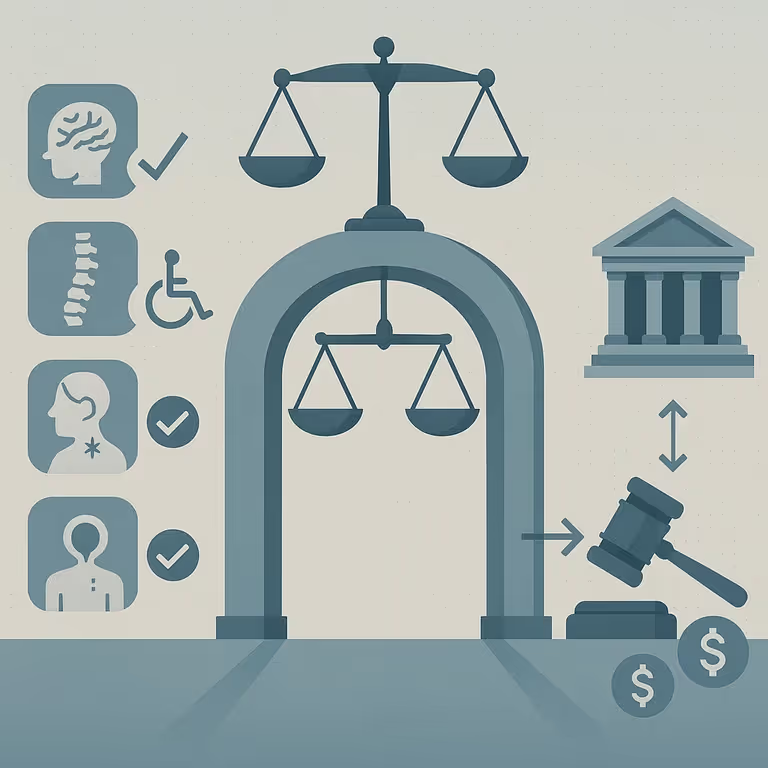
Required PIP and Property Damage Liability Coverage
Under Florida Statute 627.736, every Florida driver with a four-or-more-wheeled vehicle must carry two essential types of coverage: $10,000 minimum in Personal Injury Protection (PIP) insurance and $10,000 minimum in Property Damage Liability (PDL) coverage. These aren't optional—they're legally required for all drivers in the state, including every driver here in Melbourne and throughout Brevard County.
Your PIP insurance is where the "no-fault" concept really comes into play. According to Florida law, "PIP covers 80 percent of all necessary and reasonable medical expenses up to $10,000 resulting from a covered injury." This means if you're injured in a car accident, your own insurance company will pay 80% of your medical bills up to the $10,000 policy limit, regardless of who caused the accident.
Here's what this looks like in practice: if you're injured in an accident and rack up $8,000 in medical bills, your PIP insurance will pay $6,400 (80% of $8,000), leaving you responsible for the remaining $1,600. If your medical bills exceed the $10,000 limit, you'll need to look to other coverage options or, in qualifying cases, pursue additional compensation from the at-fault driver.
Florida is unique among states because bodily injury liability coverage—which pays others if you injure them in an accident—is generally not required. Most other states mandate this coverage, but Florida's no-fault system operates on the principle that each driver's own insurance handles their initial medical expenses and lost wages.
This distinction becomes particularly important when you consider Brevard County's accident statistics. In 2022 alone, our county saw more than 9,000 car crashes resulting in 91 fatalities. With this high volume of accidents, understanding your PIP coverage isn't just academic—it's essential for protecting yourself and your family financially.
Beyond medical expenses, PIP also covers 60% of your lost wages up to the policy limits, and it may provide benefits for essential services you can't perform due to your injuries, such as childcare or household maintenance. However, these benefits come with strict time limits and requirements, making it crucial to work with experienced serious injury attorneys who understand how to maximize your PIP benefits while preserving your rights to additional compensation.

Serious Injury Threshold and Your Right to Sue
While Florida's no-fault system handles most initial accident-related expenses through PIP coverage, there are important exceptions that allow injured parties to pursue additional compensation from at-fault drivers. Florida Statute 627.737 establishes what's known as the "serious injury threshold"—specific criteria that must be met before you can step outside the no-fault system to file a lawsuit.
The serious injury threshold includes several categories: death, significant and permanent loss of an important bodily function, permanent injury within a reasonable degree of medical probability, or significant and permanent scarring or disfigurement. These aren't just medical terms—they represent real-world situations where the $10,000 PIP limit simply isn't enough to cover the full extent of someone's damages.
To understand this practically, consider these examples: a broken arm that heals completely within six months typically won't meet the serious injury threshold, even if it required surgery and caused significant temporary disability. However, a spinal injury resulting in permanent mobility limitations, a traumatic brain injury causing ongoing cognitive problems, or severe scarring from burns would likely qualify.
Meeting the serious injury threshold is crucial because it unlocks your ability to seek compensation for pain and suffering, full lost wages beyond what PIP covers, future medical expenses, and other damages that can total hundreds of thousands or even millions of dollars. These cases require careful medical documentation and expert testimony to prove that injuries meet Florida's strict threshold requirements.
The attorneys at Douglas R. Beam P.A. have extensive experience evaluating whether injuries meet Florida's serious injury threshold, having secured significant verdicts and settlements for clients with qualifying injuries throughout Brevard County. This includes their notable $28.5 million brain injury verdict right here in Melbourne, demonstrating the potential value of cases that meet the threshold requirements.
Working with brain injury lawyers or other specialized attorneys becomes particularly important in threshold cases because insurance companies often dispute whether injuries are truly permanent or significant. They may argue that with proper treatment, your condition will improve enough that it doesn't meet the legal standard—making experienced legal representation essential for protecting your rights.
Even if your injuries don't meet the serious injury threshold, you may still have options for additional compensation, particularly if the at-fault driver was uninsured or if your damages exceed what their insurance can cover. Understanding these nuances requires careful analysis of your specific situation and the circumstances surrounding your accident.
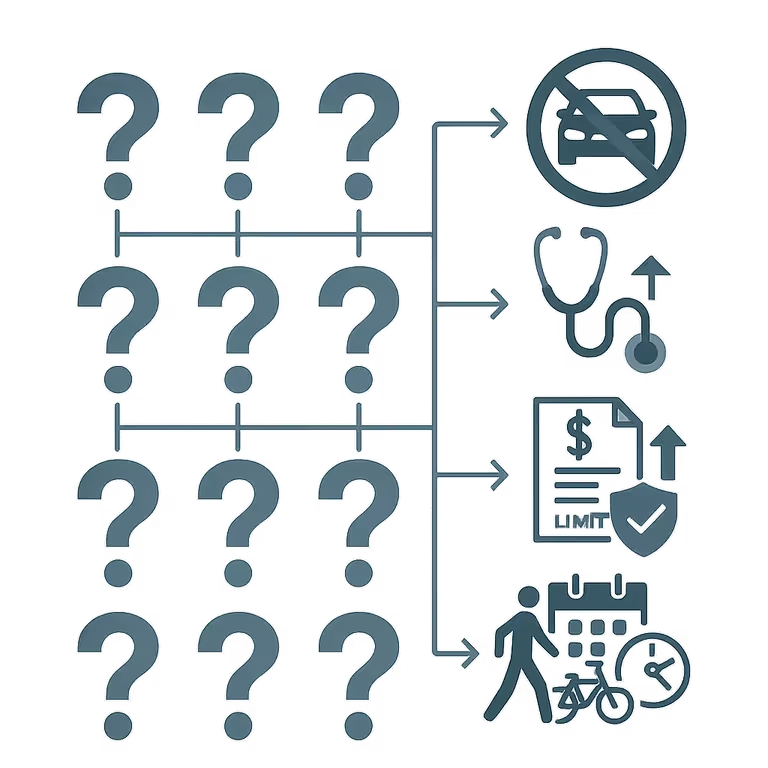
2025 Legislative Changes and Future Implications
Florida's no-fault insurance system is facing significant legislative pressure, with multiple attempts to repeal or modify the current laws. Understanding these developments is crucial for Melbourne drivers because changes could dramatically affect your insurance requirements and legal rights after an accident.
In 2024, the Florida legislature considered Senate Bill 464, which proposed completely repealing Florida's no-fault law. While this bill didn't pass, it signals ongoing legislative interest in fundamentally changing how car insurance works in Florida. The debate continues into 2025, with multiple new bills introduced that reference Florida Statute 627.736—the core of our no-fault system.
Two key bills introduced in the 2025 legislative session—SB 1256 and HB 1181—address various aspects of motor vehicle insurance requirements. While both of these bills died in committee, these bills indicate that lawmakers are still actively examining whether Florida should continue operating under the no-fault system or move toward a more traditional fault-based system like most other states use.
Governor Ron DeSantis has previously stood firm against repealing Florida's no-fault law, recognizing the potential chaos that could result from sudden changes to a system that affects nearly 18 million Florida drivers. However, the ongoing legislative discussions mean that changes remain possible, and Melbourne drivers should stay informed about potential modifications to their insurance requirements.
If Florida were to repeal its no-fault law, most drivers would likely face new requirements to carry bodily injury liability coverage, potentially increasing insurance premiums for many. However, such changes would also make it easier to sue at-fault drivers for damages without meeting the current serious injury threshold, potentially benefiting some accident victims while creating new challenges for others.
The uncertainty surrounding these legislative developments makes it more important than ever to work with personal injury lawyers who stay current on changes to Florida insurance law and can adapt their strategies accordingly. At Douglas R. Beam P.A., we monitor these legislative developments closely to ensure our clients receive the best possible representation under both current and potential future legal frameworks.
For now, Florida's no-fault system remains in effect, meaning Melbourne drivers must still carry the required PIP and PDL coverage while understanding their rights under the serious injury threshold. However, staying informed about potential changes can help you make better decisions about your insurance coverage and understand your options if you're injured in an accident.

Common Questions About No-Fault Insurance Claims
After helping Brevard County residents navigate Florida's no-fault system for over three decades, we've found that certain questions come up repeatedly. Understanding these common concerns can help you make better decisions about your coverage and know what to expect if you're involved in an accident.
What happens if the other driver doesn't have insurance?
Uninsured drivers create particular complications in Florida's no-fault system. While your PIP coverage will still pay for 80% of your medical expenses up to your policy limits, you'll likely need to rely on your own uninsured motorist coverage to pursue additional compensation. This makes carrying adequate uninsured motorist coverage particularly important in Florida, where a significant percentage of drivers operate without proper insurance.
Can I choose my own doctor for PIP treatment?
Florida law gives you some flexibility in choosing healthcare providers for PIP treatment, but there are important restrictions and time limits. You generally have 14 days from the accident to seek initial medical care, and your choice of provider can affect how much your PIP insurance will pay. Emergency care is typically covered at higher rates, while some alternative treatments may face coverage limitations.
What if my medical bills exceed $10,000?
When your medical expenses exceed your PIP limits, you're not necessarily out of options. You might be able to use your health insurance for continued treatment, pursue compensation from the at-fault driver if your injuries meet the serious injury threshold, or explore other coverage options like medical payments coverage if you purchased it. The key is understanding all your available resources before your PIP benefits are exhausted.
How long do I have to file a PIP claim?
Florida law requires you to report your accident and begin the claims process promptly. While specific deadlines can vary based on your policy terms, waiting too long can jeopardize your coverage. Most insurers require notification within a reasonable time after the accident, and delays in seeking medical treatment can be used to question the severity or accident-relatedness of your injuries.
Does no-fault apply to pedestrians and cyclists?
Pedestrians and cyclists injured by motor vehicles are covered under Florida's no-fault system, but the coverage comes from the vehicle that struck them, not their own insurance. This creates unique challenges for non-drivers, who typically don't carry their own PIP coverage but are entitled to benefits under the striking vehicle's policy.
What should I do immediately after an accident in Florida?
First, ensure everyone's safety and call 911 if anyone is injured. Document the scene with photos, exchange insurance information with all drivers, and seek medical attention promptly even if you don't feel seriously injured—some symptoms don't appear immediately. Contact your insurance company to report the accident, but be careful about recorded statements until you understand the full extent of your injuries.
Protecting Your Rights After a Melbourne Car Accident
Key Takeaways for Melbourne Drivers:
- All Florida drivers must carry minimum $10,000 PIP and PDL coverage
- Your own insurance pays first regardless of fault, covering 80% of medical expenses up to policy limits
- You can sue for additional damages only if injuries meet Florida's strict serious injury threshold
- Current legislative discussions could significantly change these requirements in the future
- Prompt medical attention and proper claims handling are crucial for protecting your rights
Understanding Florida's no-fault system is essential for every Melbourne and Brevard County driver. While the system provides important immediate benefits, navigating its complexities—especially when dealing with serious injuries—often requires experienced legal guidance.
Douglas R. Beam P.A. has been helping Melbourne area residents understand and navigate Florida's no-fault insurance system since 1988. Our team combines decades of experience with detailed knowledge of how these laws apply to real-world accident situations throughout Brevard County. Whether you're dealing with a PIP claim dispute or believe your injuries meet the serious injury threshold, we're here to help you understand your options and pursue the compensation you deserve.
Contact Douglas R. Beam, P.A. for a free consultation about your car accident case in Melbourne or anywhere in Brevard County. Call us at Call us at (321) 723-6591 to speak with our experienced Melbourne area personal injury attorneys today.
This article provides general information and is not a substitute for legal advice. Laws can change, and the details of your situation matter. For personalized guidance, please contact a qualified Florida personal injury attorney.
Not Sure What To Do Next? We Can Help – Fast & Free.
Worried About Your Injury Case?
We'll Review It - Free
Don’t miss an article
Florida law, local insights, and the occasional dog pic.
Delivered straight to your inbox.
More articles
Browse all articlesFree Case Review
Get a complimentary review of your case

.webp)
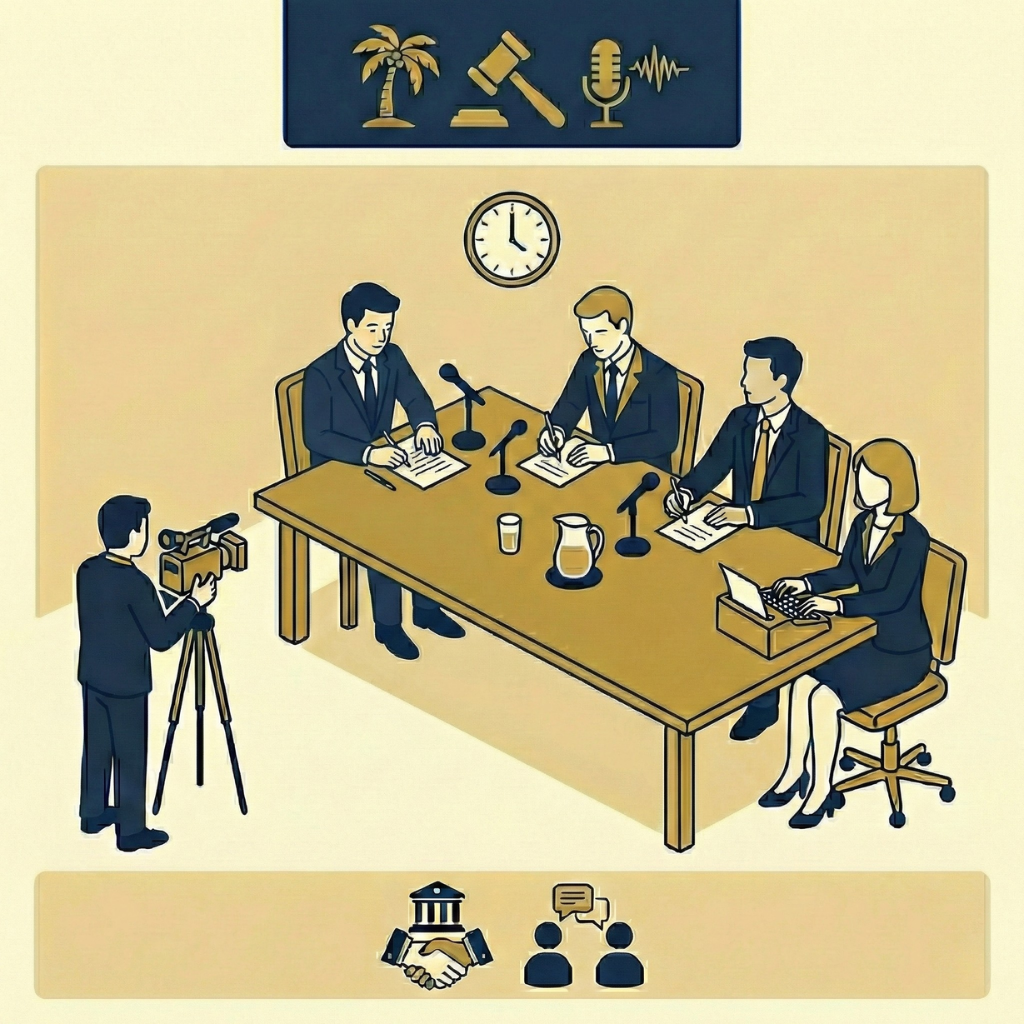
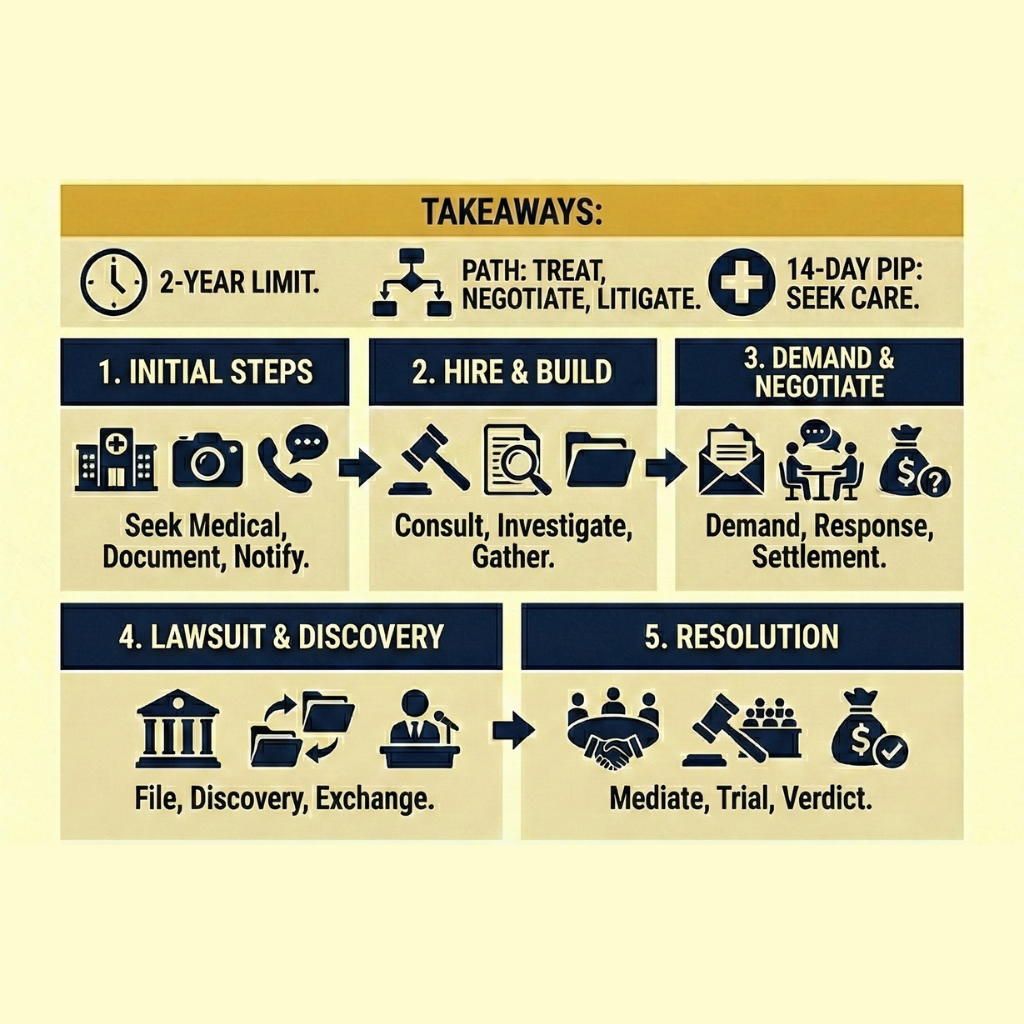



.png)
